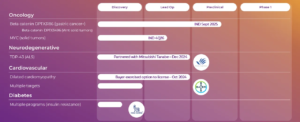
New antibiotic breaks resistance
A Dutch-German resarch team together with Evotec SE have presented a new class of vancomycin derivatives with good safety profile that kill multi-resistant, Gram-positive bugs.
Dutch and German drug discovery specialists report that a new series of semisynthetic vancomycin derivatives broadly neutralised methicillin-resistant Staphylococcus aureus (MRSA) and other antibiotic-resistant strains outperforming vancomycin in terms of safety and efficacy in challenged mice. the compounds may reduce the burden of antimicrobial resistance (AMR).
Vancomycin-resistant enterococci today make almost 30% of enterococcal infections in healthcare settings. However most semisynthetic vancomycin derivatives so far caused serious side effects. Now, Emma van Groesen and colleagues from Universities of Bonn and Leiden as well as the CRO Evotec SE report on guanidino lipoglycopeptides, which demonstrate strong antibacterial properties while having a favorable safety profile and a low propensity for resistance. When tested against a panel of Gram-positive bacteria such as MRSA, the glycopeptides neutralised the bacteria without damaging eukaryotic cells. Further studies showed that the compounds killed both wild-type and vancomycin-resistant bacteria by engaging with lipids on the bacterial cell wall with a higher affinity than vancomycin.
Guanidino lipoglycopeptides contain a positively charged guanidino moiety bearing a variable lipid group. Mechanistically, guanidino lipoglycopeptides engaged with bacterial cell wall precursor lipid II with a higher binding affinity than vancomycin. Binding to both wild-type d-Ala-d-Ala lipid II and the vancomycin-resistant d-Ala-d-Lac variant was confirmed, providing insight into the enhanced activity of guanidino lipoglycopeptides against vancomycin-resistant isolates.
One candidate named EVG7 was well-tolerated and outperformed vancomycin in mice with S. aureus thigh infections and in a 7-day survival study in mice with sepsis. Van Groesen et al. did observe some minor signs of kidney toxicity in the sepsis study at supratherapeutic doses of EVG7, and call for work in more advanced in vivo models to establish the peptide’s safety profile before human testings.


 WLan Holding
WLan Holding Dewpoint Therapeutics Inc
Dewpoint Therapeutics Inc CARB-X
CARB-X